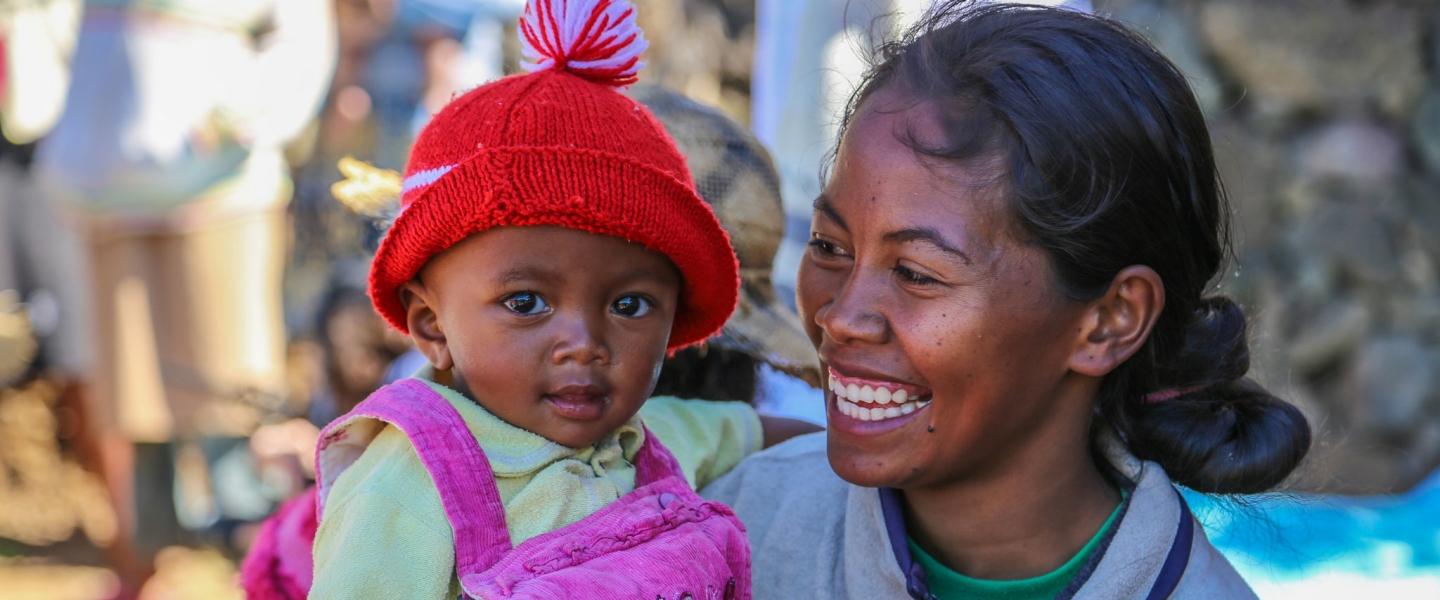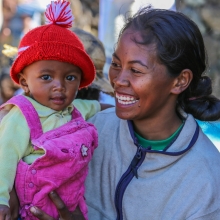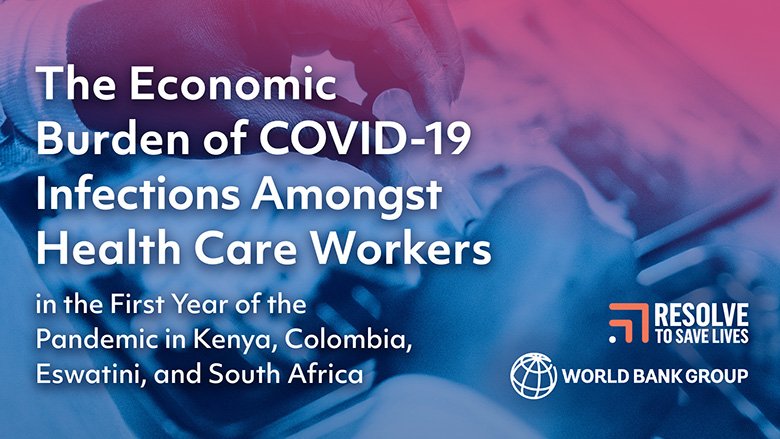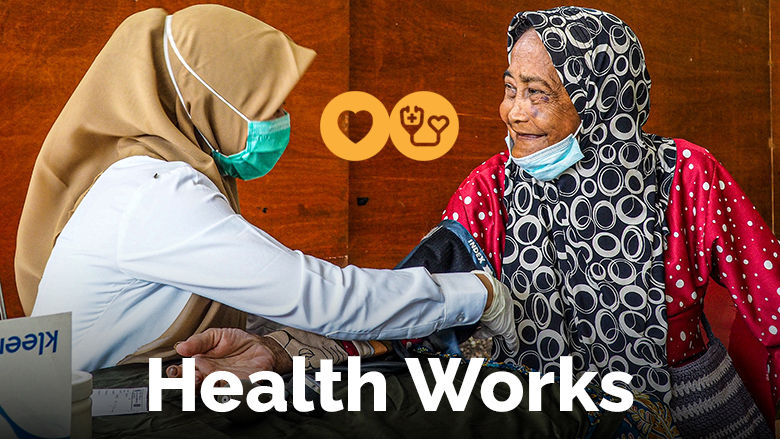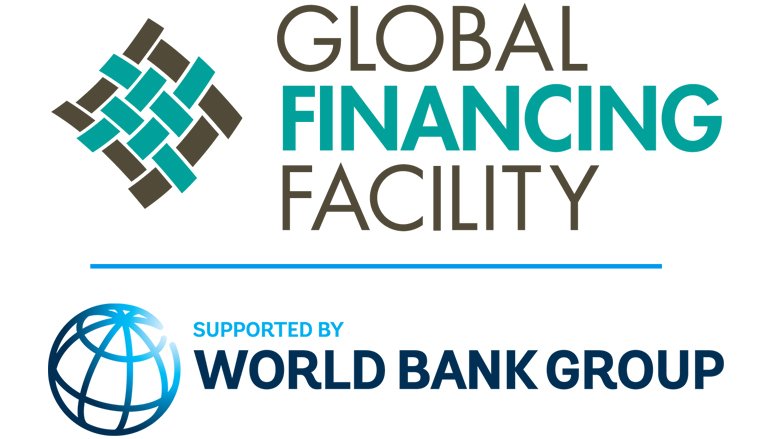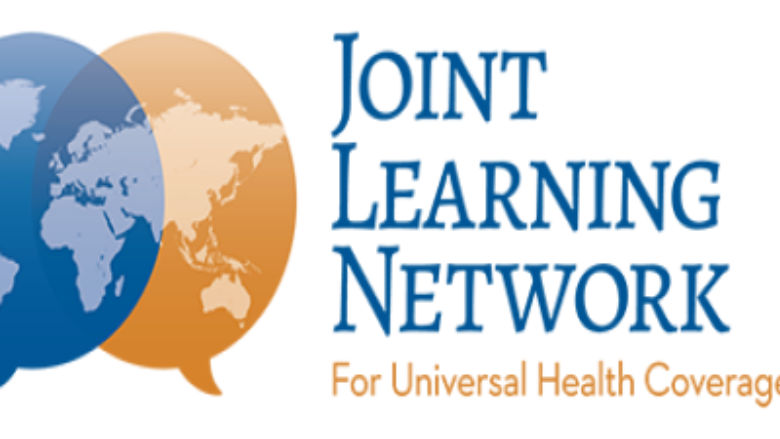Health, Economic Growth and Jobs
Investing in a skilled, healthy workforce, infrastructure, and technology are crucial for economic growth, job creation, and security. By prioritizing health, countries build the foundation for the human capital that drives job creation, shared prosperity and improved societal well-being. For example, investing in nutrition is smart economics, with every dollar spent generating up to $23 in returns through better health outcomes and increased productivity. But investing in health is not just about improved health outcomes—it is a catalyst for broader economic and employment benefits, particularly for women, who make up over 70% of the global health workforce but hold only 25% of senior roles.
However, insufficient investments in health continue to hinder progress. Governments in low-income countries spend less than 2% of GDP on health, leaving millions without essential care. Without strategic investments, health systems will struggle to meet the demands of aging populations, rising non-communicable diseases, and emerging health threats. This underinvestment leads to economic stagnation and reduced productivity. The World Bank estimates that failing to invest in health systems that support longevity could lead to economic losses amounting to billions annually, weakening long-term growth potential.
Strengthening Health Systems and Preventing Health Emergencies
Health emergencies pose a serious threat not only to global health security and to achieving universal health coverage, but also to economic security. While deadly disease outbreaks are inevitable, strong health systems help countries to better detect and respond to diseases and prevent an outbreak from becoming a pandemic.
The COVID-19 pandemic inflicted devastating health and economic costs, but also created a once-in-a-generation chance for transformational health system changes. The World Bank is committed to helping developing countries achieve universal health coverage through stronger, more resilient health systems and provide quality, affordable health services to everyone – especially to the most vulnerable people.
The World Bank was the largest single funder of the global COVID-19 health response with $14.3 billion committed to over 100 countries, including in 32 countries impacted by fragility, conflict and violence. Through this financing, the Bank continues to assist governments to strengthen health systems, disease surveillance, and public health interventions, and work with the private sector to reduce the impact on economies.
The Pandemic Fund, housed at the World Bank, provides a dedicated stream of additional, long-term financing to strengthen pandemic preparedness and response (PPR) capabilities in low- and middle-income countries and addresses critical gaps through investments and technical support at the national, regional, and global levels. This multilateral financing mechanism complements other partnerships like the Global Financing Facility (GFF) and Health Systems Transformation and Resilience Fund to align investments behind country plans.
Nutrition
Nutrition interventions are consistently identified as one of the most cost-effective development actions. However, an estimated 149 million children under 5 are stunted (low height for age), which compromises not only child’s health and survival but also brain development, learning, and adult earnings, leading to long-term impacts on countries’ human capital formation. Over 70% of countries — the vast majority of which are low- and lower-middle-income countries — currently face a double burden of malnutrition: a high prevalence of both undernutrition and obesity.
The Investment Framework for Nutrition 2024, shows that investments to scale up high-impact nutrition interventions could save the lives of 6.2 million children under age five and prevent 980,000 stillbirths over the next decade. Such programs would also avert 27 million cases of child stunting and 144 million cases of maternal anemia. Both undernutrition and obesity are obstacles to human capital, economic productivity, and an equitable, prosperous world. The economic benefits of nutrition interventions far outweigh the costs of inaction. In fact, every dollar invested in combating malnutrition yields a $23 return through improved productivity and health outcomes.
Investing in Healthy Longevity
Compounding these challenges is the rapid aging of populations worldwide, fueling a surge of non-communicable diseases (NCDs) and health care costs around the world.
NCDs are the cause of 70 % of deaths globally, with most of these deaths occurring in low- and middle-income countries. Despite advances in reducing communicable diseases, rates remain high in many parts of the world for malnutrition, unmet need for sexual and reproductive health services, and maternal mortality.
But there is an opportunity to leverage population aging for health, societal, and economic gains by investing today in health and wellbeing across people’s lives. This includes measures to control NCDs and their risk factors which contribute to a large and growing burden of avoidable mortality. Our recent report shows that investing in healthy longevity could save 150 million lives in low- and middle- income countries and extend millions more by 2050, generating significant economic benefit.
Health Financing
World Bank research shows that following global economic shocks from the COVID-19 pandemic and the Russian invasion of Ukraine, the spending capacity of governments has started to decline or stagnate in many low- and lower middle-income countries. Without bold choices, these countries will be unable to make the necessary investment to strengthen public health preparedness and make progress toward universal health coverage.
In 41 countries, government spending until 2027 is projected to remain lower than before COVID-19, restricting their ability to invest in critical areas, including health. In addition, rising interest payments on public debt further threaten the capacity of many countries to invest in health. Without immediate action, many low- and lower middle-income countries will be left behind on the path to health and economic recovery leading to growing inequalities between countries, threatening global stability, and prosperity.
One challenge countries are facing is budget execution. A recent report proposes solution models for governments and offers a more purposeful and collaborative budget implementation approach that involves finance, health and local government stakeholders.
Climate Change and Health
Unabated climate change is also expected to make the global goal of poverty reduction even more challenging to reach. A recent World Bank study estimates that climate change may push an additional 132 million people (more than half of whom live in Sub-Saharan Africa and South Asia), into extreme poverty by 2030, with 44 million of these driven by health impacts.
As the largest climate financier, and the biggest funder of health systems, the World Bank is committed to increasing its investments in climate-health action. Through its Health and Climate Program, it is integrating climate considerations through its $27 billion health portfolio which is active in over 100 countries.
The World Bank has already made significant climate-related health investments across more than 100 countries – with 80 percent of its investments allocated to adaptation interventions such as urgent nutrition support, surveillance systems, and emergency response centers.
Last Updated: Apr 18, 2025
